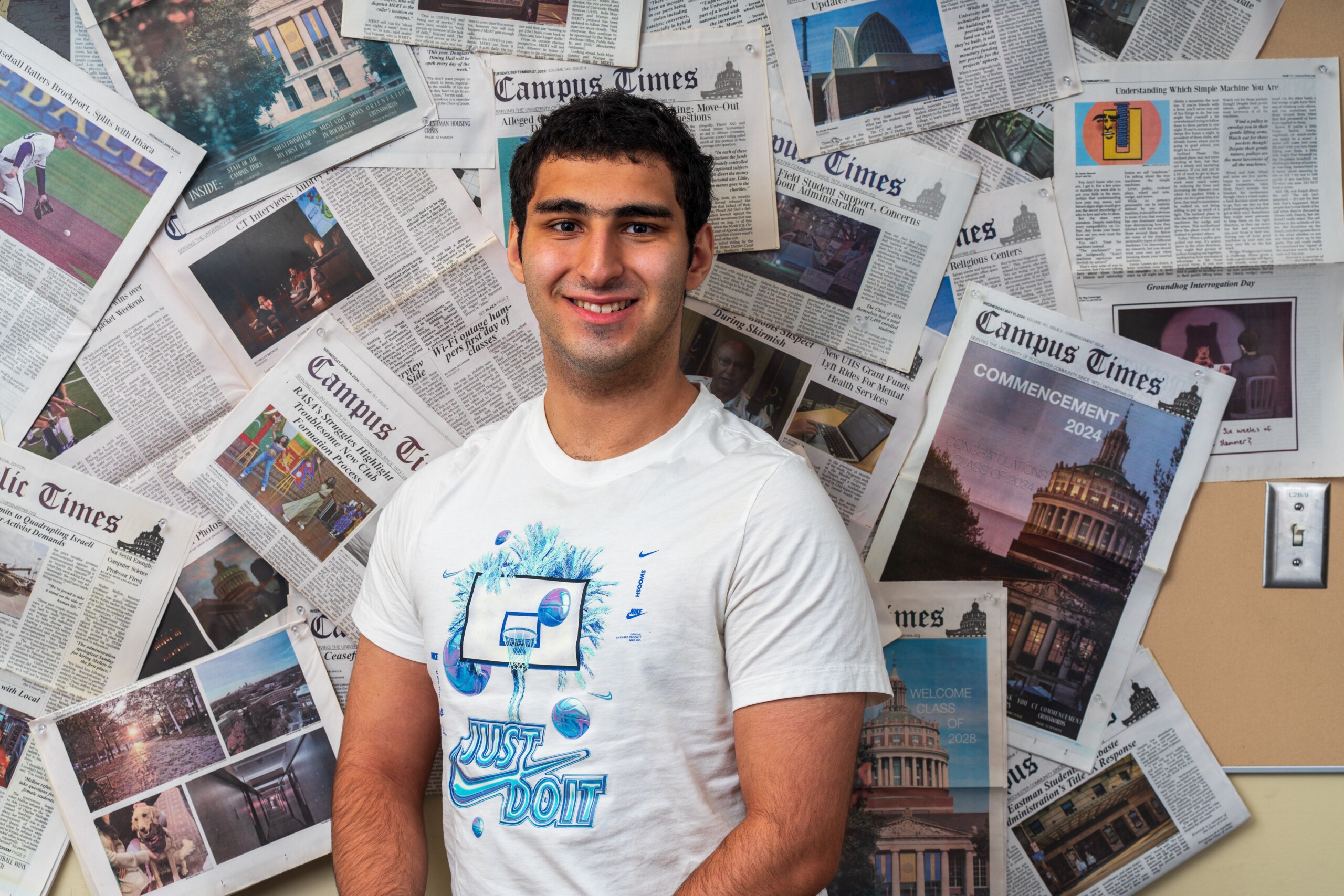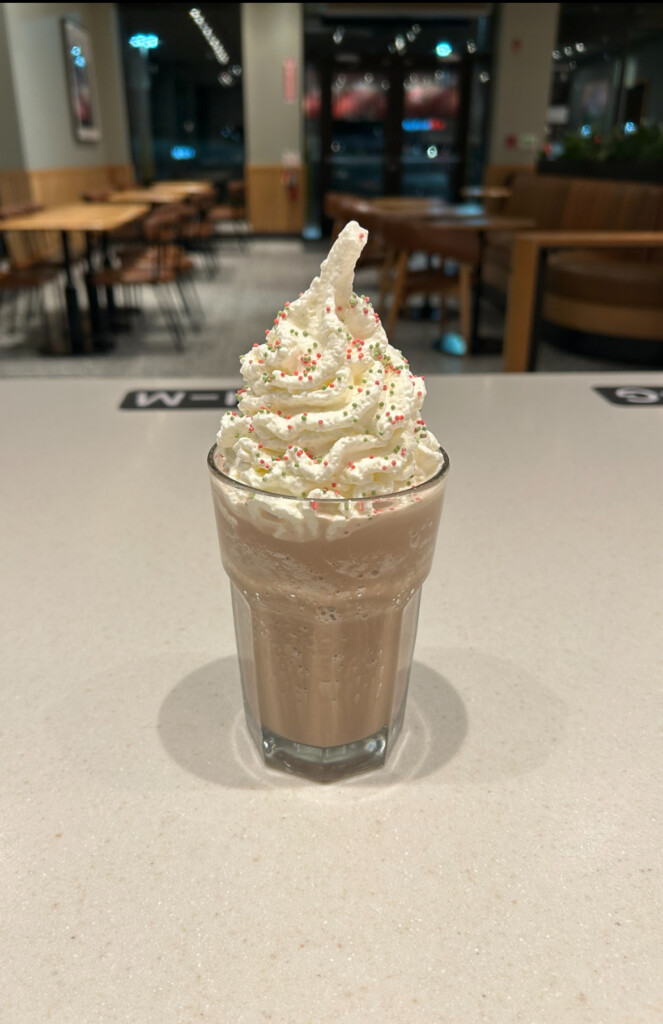Having battled their way back from a 1-6 start to a 7-10 record, UR’s volleyball team is aiming high. According to their players, success has as much to do with camaraderie off the court as it does with their performance on the court.
Senior Alexia Nelms (#16) said the difference between her first year as a UR volleyball player and this one are apparent. In her first year, the team struggled to stay competitive in a challenging UAA league. Now, Nelms said that the team is younger, hungrier, and more ambitious. “We’re taking bigger swings, we’re making plays we didn’t used to make, and we’re scrappy,” Nelms said.
Nelms, who is one of the team captains, said she aims to lead the team on and off the court. As a setter, Nelms’s job is to give her teammates opportunities to score — something she has evidently excelled in, leading the team with 423 assists in 17 matches. Moreover, she leads her teammates by exemplifying discipline, focus, and hard work in volleyball and academic life. The volleyball team “is like a family” to Nelms; even outside of volleyball, they spend much of their time together socializing and studying.
“Coach [Iya] is big on knowing your teammates,” Nelms said, who credits her coaches with fostering a culture of support and understanding. “Coach sees that we are students first and athletes second.” Nelms came to UR so she could pursue volleyball while also enjoying the benefits of an open curriculum, which allowed her to study psychology and brain and cognitive sciences.
Junior Rylee Bergeron (#11) said that UR has been exceptionally welcoming as a transfer student from Hamilton College. Bergeron chose to transfer because she knew UR would be a more complete and competitive volleyball program than Hamilton, and because she believed that she would come into a better program for her major. As a student studying computer science, she hopes to use her degree to work in software development in the future. Alongside her academic pursuits, however, she has immediately stepped in and delivered crucial performances on the court, leading the Yellowjackets in kills with 184 and coming in second in digs.
Off the court, Bergeron commended the volleyball program’s commitment to academic achievement, both from the players and their coaches. Bergeron complimented Coach Iya on her understanding of her players as students first, but added that “she’s very competitive and has high standards for us.” Regarding the players, Bergeron said, “On the bus rides, everyone’s locked in, doing homework.”
Bergeron looks forward to the challenges presented by playing other UAA teams, saying, “I’m really excited to play the other teams in our conference. It’ll be really high-level, competitive volleyball.”
Sophomore Lydia Weeks (#18) is the team’s youngest captain and leads the team in digs with 204. Weeks takes her captainship seriously, saying, “I pride myself on being consistent and dependable.” As a captain, Weeks is often an intermediary between the players and the coaching staff. As such, Weeks must be attuned to the needs of the players and the coaches. Moreover, Weeks said that their coaches are crucial to the success of the team through their ability to foster growth on and off the court.
This growth has been apparent to all involved in the volleyball team, with Weeks noting a new sense of togetherness this season. Last year, a large first year recruiting class meant that there was an influx of new talent which could coalesce and allow rapid development as a team. This year, there are fewer new faces.
As a biomedical engineering major, Weeks chose UR because of the opportunity to do undergraduate research and because she could prioritize academics over volleyball. In her academic career thus far, she has been able to develop strong relationships with classmates and professors in her field.
Sophomore Ashley Cook (#3) has embraced the challenge of improving upon her stellar first year, ranking top three on the team in kills, service aces, and digs this season. Like Weeks, Cook appreciated having a year to bond with her teammates and form team continuity. Because the coaches did not need to worry about figuring out the roles of as many new players, they experimented with different lineups in the beginning of this season. “We were trying a lot of different things out early this year and we’re starting to find a rhythm,” said Cook.
That rhythm has resulted in six wins in the Yellowjackets’ last ten games. Cook said that the team remains close-knit amidst the pressures of winning. “Us as a team, we’re all so understanding,” Cook said about the team dynamic. Cook, who is an economics major, recognized the challenges and constraints of being a student-athlete but emphasized the time management skills it has taught her.
As a sophomore, Cook has taken the opportunity to be a leader on and off the floor. “Even if I’m not the loudest, I can lead through action,” Cook said. Cook also reflected on the development of the team amidst their turnaround: “There’s these sparks of potential out on the court.”
UR will host the UAA Conference Championships at the Louis Alexander Palestra in November, where the team hopes to show off that potential in front of their home crowd. Before then, they will next play Alfred University at the Palestra on Oct. 9.


